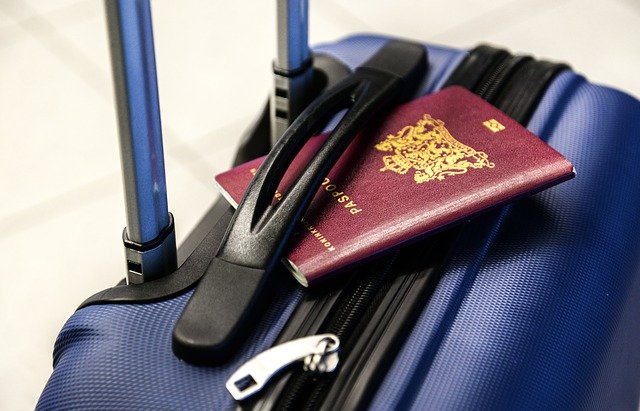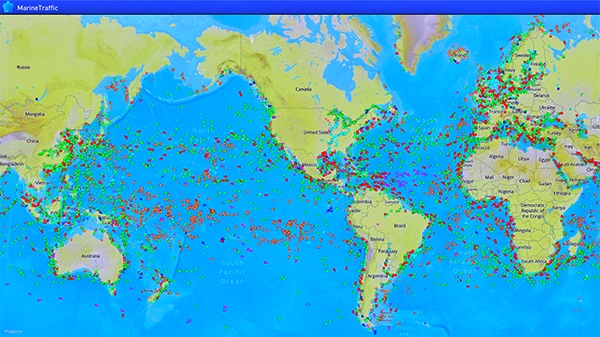When a Seafarer Becomes Terrestrial
We are born with a “basic endowment” provided by nature, enriched by the parents and completed by an “unknown ingredient” that makes us unique.
We are like a great book yet written when we come into the world. Our name is on the cover, but the pages are almost entirely blank.
In this text, we will not tell our story, but it will show how we will live our lives, depending on how we will be “programmed”.
From the moment you are born and throughout your life, you receive input from the outside: sounds, images, thoughts, smells, procedures, truths, and lies. Data to be processed and managed.
There are so many signals. But how does the brain defend itself from overload information? Its incredible efficiency creates “programs” that activate “automatisms”.
Driving the car is a practical example: steering wheel, gearbox, clutch, accelerator, and brake; operations in succession done with proper timing. When you learn to drive, you must think about your actions and the correct sequence at the right times. The repetition of gestures creates a brain program that allows you to act automatically without thinking and questioning.
An electrical circuit creates between several neurons called “synapses” whenever we remember something we learn. In this way, the information we store can interact to shape more profound thoughts and knowledge. Once synapses create, no more questioning arises. (fire burns = don’t touch it, lower the handle = open the door, tie your shoes, write, read, etc.).
Once a specific competence is acquired, a part of the brain that deals with automatic processes no longer need to be verified.
When the book is empty, the programming processes are linear and straightforward, but what happens if, years later, the automatisms created are no longer current? Can you adapt new concepts to old ideas? What happens if we question the “certainties” already deposited?
It is challenging to reprogram a brain circuit, overwrite a synapse, and radically change your mind about something.
Over time, there is a risk of making decisions based on programs that are no longer correct, wrong or outdated but which, in any case, are not called into question. Programs that, beyond our control, influence our thoughts.
What does this aspect have to do with “a seafarer who becomes terrestrial”?
The above can be the basis for many arguments.
Open-mindedness is the ability to question oneself and the predisposition to change habits so that automatisms do not become limits. Realise that nothing is forever: the presuppositions, the circumstances, the subjects, the right and the wrong ideas, the possible and the impossible. Things change; therefore, the opinions and positions taken can and must change.
The difference between seafarers and terrestrials is similar to that between sea and freshwater fish: creatures adapted to different environments. Comparing them, judging them, or simply talking about them is anything but simply because there are too many things that change everyone’s reality.
For seafarers, it is necessary to consider where they lived and worked; life on board a passenger ship is very different from that on an oil tanker, on a tugboat or a ferry, and so the experiences that develop over time. The nationality of the crew, the routes they follow, the ports they call, the rank they cover, the length of the contracts, etc., all combine to make it difficult to categorise the “typical” seafarer.
The terrestrial person can be a team member or an entrepreneur, work in a large or small company or have their own business, commute or smart worker, and so on for many variables.
Let us now deepen, generalising, the knowledge of some truths that almost certainly influence the traces of the synapses of seafarers:
the consideration of “hierarchy” on board a ship is not, in the same way, felt in a land structure. To take it to extremes, the concept of the sea captain’s old saying “after God there is me” sees its justification precisely in need to guarantee a particular “order,” which, in the middle of the sea, is equivalent to “safety”. The man’s adaptability is undeniable and is demonstrated once more in this context: months and months away from habits, from one’s interests, from friends and from loved ones, forced to share a small space and relationships with people who do not know each other, collected absolutely at random and, often, of entirely different nationalities – religions – ages – cultures. In some contexts, there are no women. No social life. No cinema. No beer with friends. No, “now I take off for two days and relax“. Could such an extreme situation ever be managed without a clear hierarchy? I am convinced not. But to understand it and, above all, to accept it, one must enter that world on tiptoe; as the last wheel of the car, one must slowly build solid and deep synapses. One must understand and accept. The alternative is to jump off the carousel at the first Port. (which happens to many people on the first boarding).
The relationship between those who live in a few square meters 24 hours a day cannot be the same as between people who hang out for only 8 hours a day. The essential concept: “choose wisely the individuals with whom to enrich your life” has no possibility of application, leading to “splits of existence“. I’ll explain. Life runs more or less constantly on the landside, marked by work and family commitments. The people who enrich it (or impoverish it) are always the same or change slowly. It makes me think that life on land flows underpinned by balances that we can identify in constants and certainties. That of the seafarer develops, at least, in two dimensions: one in the family context, where he often struggles to re-enter at the end of boarding and from which he then struggles to break away when the time comes to leave; the other find onboard (for about eight months a year) where the environment changes every time and the constant anchors the passion for work, loneliness, melancholy and selfishness in which the seafarer takes refuge to give a sense to a routine that is humanly difficult to accept. “Splits of existence” highlights how new ingredients characterise each embarkation period in always the same context. It becomes a piece of life in its own right, intensely shared with people who perhaps will not meet again. Everyone embarks on a circumscribed memory almost unrelated to that linked between birth and death.
Maritime, as for many other professions, can only be done up to a certain age. Age in which the synapses have not yet imposed their limits.
If you have worked on the land, you know the possibility of a cerebral refuge from everyday problems offered by parallel lives (family, friends, hobbies, work, etc.). Suppose you appreciate the rights and the advantages of a “controlled hierarchy”, If jealousy, nostalgia, and a thousand other valid reasons have already consolidated deep synapses in your brain. It would be challenging to accept an ocean-going life in the seven seas. It is a profession unknown by most, even less considered and often forgotten (see political elections, social rights and protection, dedicated ministries, job guarantee, unrecognised qualifications, etc.).
When thoughts tend to take this direction, the title of the book “The Living, the Dead and the Sailors” comes to mind. These are words that convey the idea of something floating in the fog.
We live in a boot-like country. We have 8000 km of coasts washed by the sea. Yet there is still a social separation between those who work in one element and those in the other.
Italy still has a long way to go to balance the lives of seafarers, even by looking at those who sail under other flags.
But despite everything, the ship is also a refuge.
I said that the hierarchy is deeply felt onboard. I add that the roles, duties, and rights are well-defined. The problems are almost daily, sometimes independent of someone’s will and often linked to atmospheric elements, breakdowns, and program changes. In short, these are practical problems which we can solve with preparation, goodwill and respect for skills.
The seafarer who becomes terrestrial plunges into a deeper personal bureaucracy: he discovers deadlines, bills, fines, and realises the psychological difference that passes between the management of “work waste” – where there is a dedicated and foreseen time to which you get used to – and the one in which, having no more consecutive free months available, a good organisation of time is necessary. He realises that there is no longer a second dimension, that the possibility of moving at sea or on land according to convenience has vanished.
The game becomes more subtle, especially if, before leaving the sea, he has been sailing for several years.
Terrestrials are not practical and simple like seafarers. For them, problems have many faces, and any question has more colours than the rainbow. The black and white have changed in meaning to which sailors were accustomed, infinitely expanding the shades.
Everything gets complicated. Relationships with people, for example, become a mystery. Without changing the environment and context on board, the characters come out for who they are – it happens quickly, and no one can hide it -.
On land, the mood and personality change several times a day, depending on whether you are in the family, at work, or among friends: the environment, the context, the role and the way of acting sometimes change, and you need to put on or take off your tie.
But disrupting habits is often a good thing. We must leave the “comfort zone”, where everything is familiar, question the automatisms created in the brain up to that moment, build new synapses and adapt to change.
Can anyone do it?
I do not believe it. It takes a certain predisposition, the luck of ending up in the right environment, strong motivation and the flexibility needed to question the certainties created up to that moment.
The seafarer who becomes terrestrial is the classic ‘fish out of the water’. The speed/possibility of adaptation will depend mainly on his character and the familiarity he will be able to preserve with the stable environment.
However, he will have a different way of seeing things, which at times will be an advantage and at others a limit, but will undoubtedly help to reflect.
When you are on a ship between sky and sea, you know what you have to be careful of: the sea is no one’s friend; on the land, this too is never so clear.




